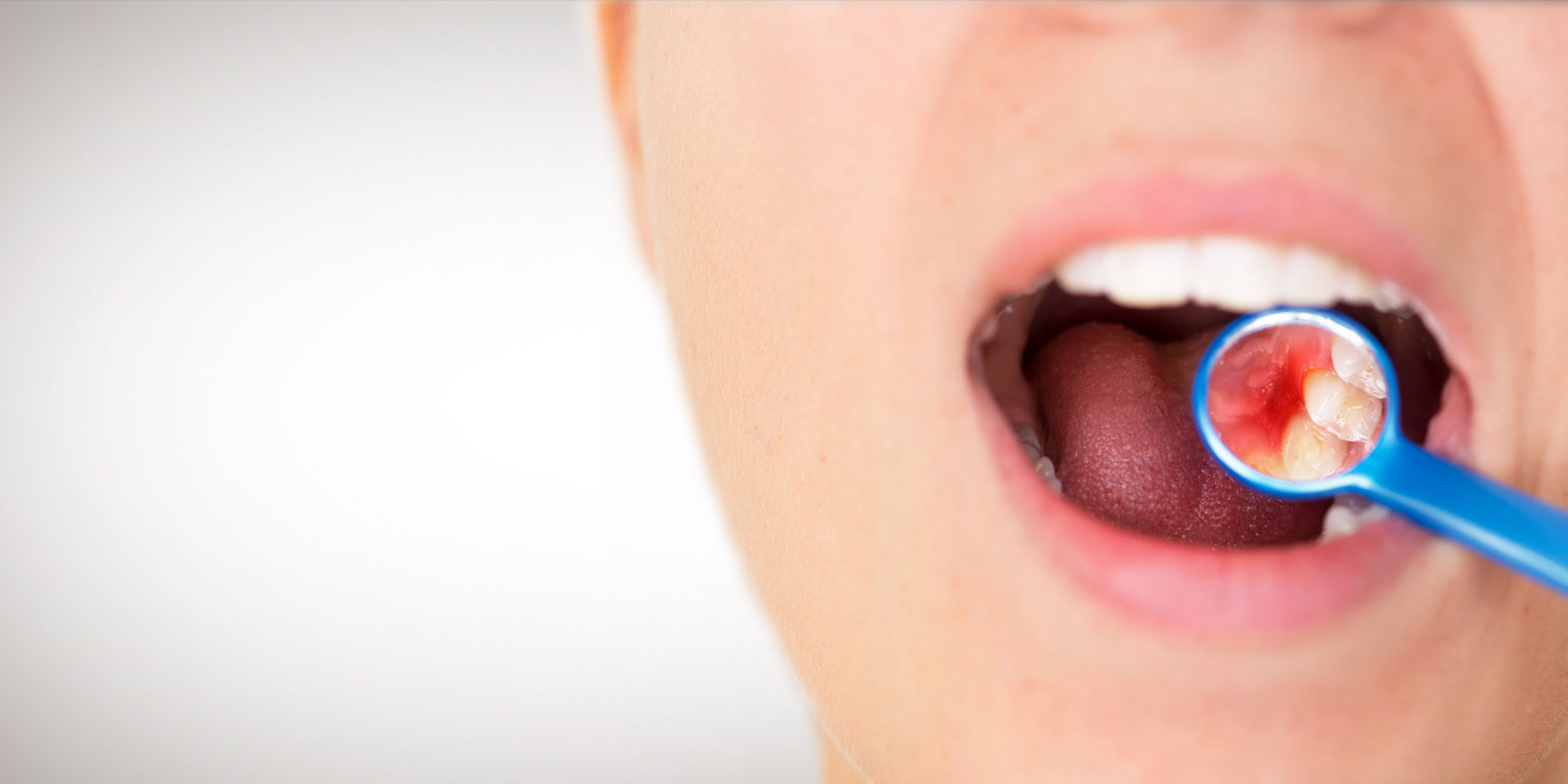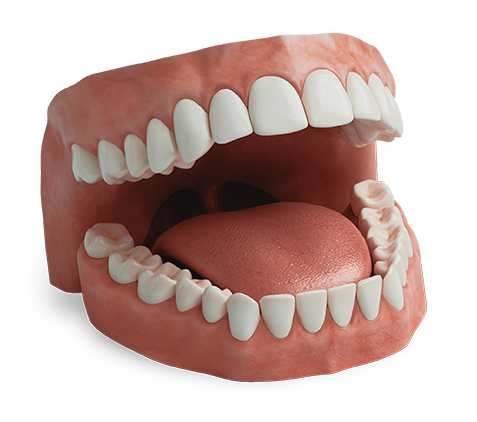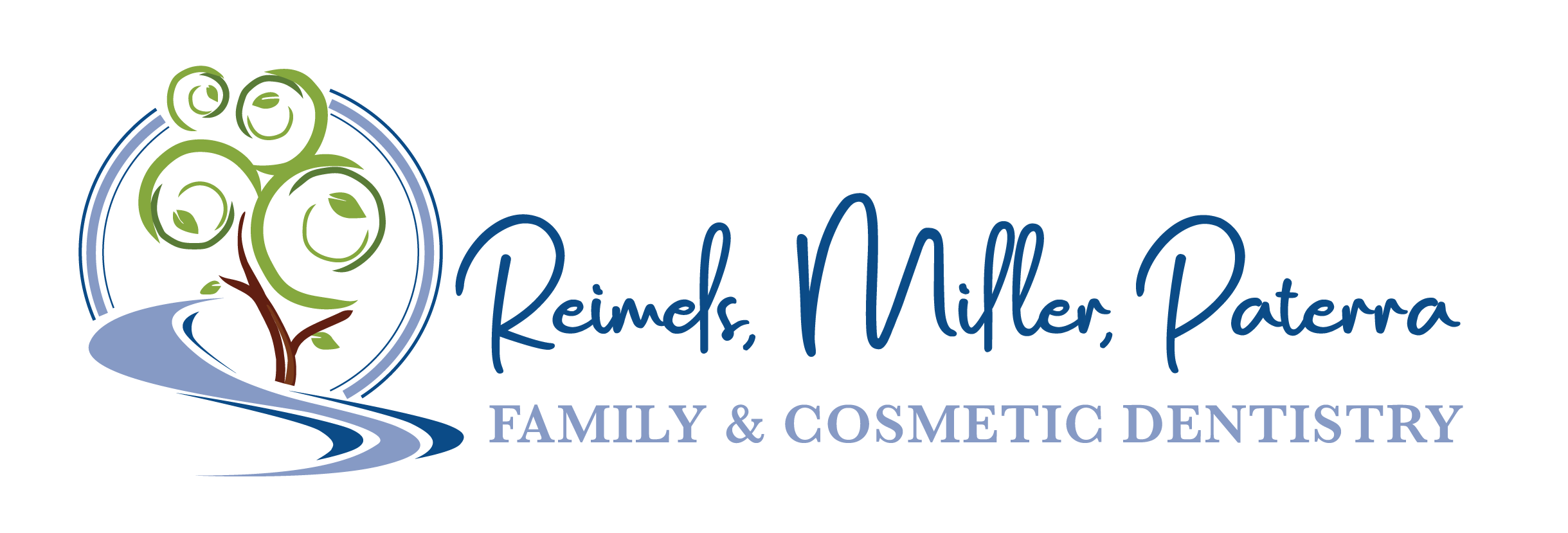
Soft Tissue Periodontics - Huntersville, NC
Gums Need TLC to Ensure a Healthy Smile and Life
Schedule NowHealthy Gum Tissue is About More Than Smiles
Although your gums may not seem like an important part of your mouth, they play a big role in the aesthetics and function of your smile. Gums provide an attractive balance between your tissue, teeth, and lip line. They also form a tight seal around the base of your teeth to prevent dangerous bacteria from wreaking havoc on your oral and systemic health. When plaque and tartar accumulate on your teeth, your gums become inflamed and tender before pulling away. This can lead to infections, sensitivity, pain, and even structural problems with your teeth and bone. The experienced team at Reimels, Miller, Paterra Family & Cosmetic Dentistry offer a full spectrum of soft tissue treatment in Huntersville, NC focused on restoring the health, function, and natural beauty of your gums and smile.

Benefits of Soft Tissue Peridontics
- An attractive, healthy smile
- An attractive, healthy smile
- Reduced risk of gum infection
- Helps prevent tooth loss
- Minimized tooth sensitivity
- Improved daily function

Treatments to Restore Your Gums and Smile
Gum disease progressively damages your gum tissue, underlying bone, and teeth. Healing soft tissue treatment in Huntersville, NC focuses on eliminating infection-causing bacteria and restoring function to remaining structures. For many procedures, we use gentle laser surgery coupled with sedation to ensure your ultimate comfort during treatment. Treating gum disease in its early stages helps prevents it from negatively impacting your oral and general health, including the loss of teeth.
Laser Gum Surgery
Laser dentistry is minimally invasive, reduces bacteria, and promotes regeneration of healthy gum and bone. The benefits of laser gum therapy include rapid recovery, less pain and downtime, and a better overall experience. We use a Gemini laser for tissue removal, biopsies, gingivectomy, frenectomy, crown lengthening, peri-implantitis, ulcer treatment, and sulcus decontamination. The latter involves removing harmful bacteria from the gingiva, the space where your teeth and gums meet.
Gingivectomy
Soft tissue damaged by gum disease pulls away from your teeth, leaving deep pockets that trap plaque and bacteria. A gingivectomy removes these tissues, enabling healthy gums to reattach to the teeth once the pockets are cleaned. Restoring the health of your gums ensures a tight seal that effectively blocks bacteria from inflicting future damage.
Gingival Grafts
Gum recession exposes the roots of your teeth, which can increase the risk of decay and make your teeth more sensitive and prone to abrasion. Also known as a gum graft, the first method involves removing a piece of tissue from the roof of your mouth or nearby healthy gum tissue. Then it is attached to the area where gums are recessed. The second method, known as a connective gum graft also involves opening a small flap on the roof of your mouth, however, the graft is removed from under the top layer of tissue. The third method, called a pedicle graft, creates a flap of tissue from an area right next to your gum recession and uses this to cover the area of receding gum tissue.
Crown Lengthening
A “gummy” smile can occur when gum tissue and bone fail to retract after your adult teeth have erupted. This causes your teeth to appear small because too much gum tissue shows when you smile. Crown lengthening removes excess gum tissue and bone to reestablish a prettier, more symmetrical gumline and proper tooth-to-gum ratio.
Frenectomy
In the upper arch, a frenulum or frenum is the tissue that connects the gum to the lip. In the lower mouth, the frenum is located between the base of the tongue and the floor of the mouth. If the frenulum is too tight, this can restrict movement and hinder everyday functions like speaking and swallowing. Removing excess frenum from the upper gums can prevent gaps in the front teeth and associated orthodontic problems. Loosening frenum tissue under the tongue allows better mobility and prevents related speech problems. While more common in children, this procedure can be performed at any age to improve oral health and promote a lifetime of smiles.
Scaling and Root Planing
This non-surgical, two-part deep cleaning is often the first procedure we perform to fight gum disease. Scaling removes all the plaque and tartar above and below your gumline, down to the bottom of the pocket. During root planing, we remove plaque, tartar buildup, and bacteria from the roots of your teeth and smooth rough surfaces.
Osseous Surgery
This common surgical procedure is used to treat advanced periodontal disease. During surgery, we gently pull gum tissue away from your teeth to smooth bone irregularities and eliminate or reduce gum pockets. Then a deep cleaning is performed before we reattach gums to your tooth surfaces.
Periodontal Maintenance
This common surgical procedure is used to treat advanced periodontal disease. During surgery, we gently pull gum tissue away from your teeth to smooth bone irregularities and eliminate or reduce gum pockets. Then a deep cleaning is performed before we reattach gums to your tooth surfaces.
Peri-implantitis
Peri-implant diseases are inflammatory conditions affecting the soft- and hard-gum-tissues around dental implants. In latter stages known as peri-implantitis, the bone can deteriorate. Certain risk factors increase your risk, including a history of periodontitis, diabetes, osteoporosis, tobacco smoking, and a genetic predisposition. Laser surgery to reduce bacteria and treat the damaged bone can help save the implant while reducing pain and discomfort associated with conventional treatment.
Healthy gums ensure a healthy smile!
Schedule your soft tissue treatment in Huntersville, NC today.

